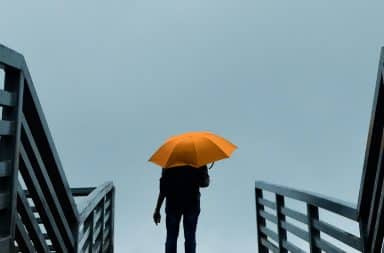On behalf of anxious flyers across the globe, I’d like to propose a recall of the phrase “have a safe flight.” It's time to abolish this well-intentioned phrase that does more harm than good.
1. It implies that the flyer’s death is imminent.
Although the saying is meant to signal one’s investment in the well-being of the recipient flyer, “have a safe flight” serves as a reminder of everything that could go wrong as I sit forty-thousand feet above the ground, tightly packed with a group of strangers inside a one-hundred-thirty-thousand-pound capsule that is able to remain in flight for reasons I would rather not attempt to understand.
When you politely request that I have a safe flight, which unlikely mishap are you willing not to happen? A terrorist attack? The terrifying thought that I’d actually be faced with a reason to use the oxygen mask, which I have no idea how to access or put on because I kept my AirPods in during the cringey instructional video? The even more terrifying thought that I’d have to open the door of the exit row that I explicitly agreed to sit at, not because I have any understanding of how to complete the task, but because I wanted the extra legroom?
2. It lacks a natural response.
How does one appropriately reply to “have a safe flight”?
“Thanks, I’ll poke my head into the cockpit to let the pilot know I’d prefer it if they didn’t crash into the ocean.”
“Thanks, I also hope one of my fellow passengers isn’t hiding a knife in their pocket.”
“I, too, hope I make it to my destination intact.”
3. It’s a little too patriotic for comfort.
The phrase perfectly captures the age-old Western value of individualism. You, a consumer of air travel who has no understanding of physics; who cannot begin to imagine how to successfully fight off an attacker; who cannot heroically take the place of the pilots should they happen to drop dead mid-flight; are tasked with ensuring your own survival as you race through the sky at five-hundred miles per hour.
The US government has created an agency that serves the sole purpose of increasing the chances that you will, in fact, have a safe flight. However, much like telling someone to “have a safe flight,” the Transportation Security Agency does little to increase the safety of our flights. (Yes, this means you probably got to the airport three hours early and exposed your bare feet to TSA agents for nothing.)
Fun Alternatives
The good news for anxious flyers is that, statistically, flying is the safest form of travel. So, please, let’s stop fear-mongering. Below are words of comfort that more accurately pertain to issues that flyers commonly face:
“I hope you take a Benadryl before your flight so you knock out immediately upon your takeoff.”
“I hope your noise-canceling headphones drown out the sound of the screaming baby in the seat behind you.”
“I hope you don’t have to pee so badly that you are forced to wake up the sleeping middle-aged man in the aisle seat.”


